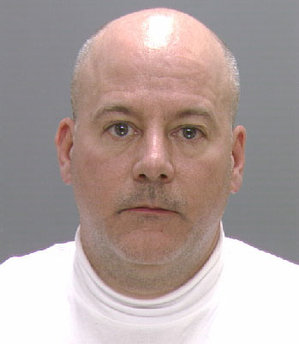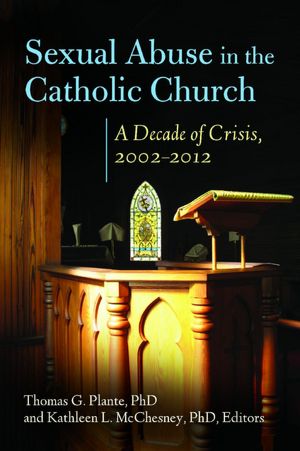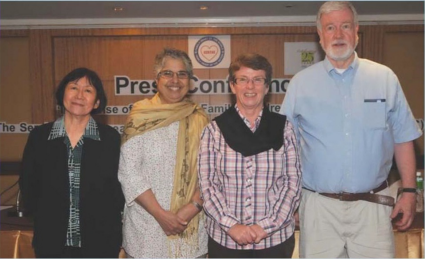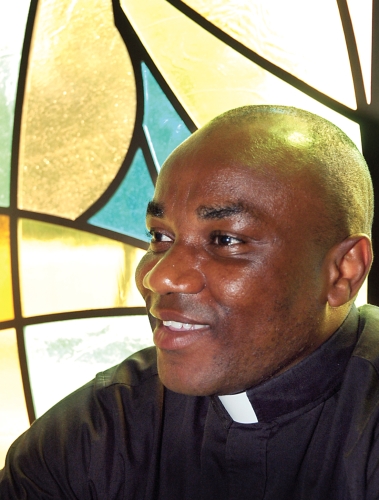A Gaithersburg priest who was put on administrative leave from his parish after a controversial funeral Mass at which he denied Communion to a lesbian said in a statement Wednesday that he “did the only thing a faithful Catholic priest could do” and suggested that archdiocesan leaders and the woman were lying.
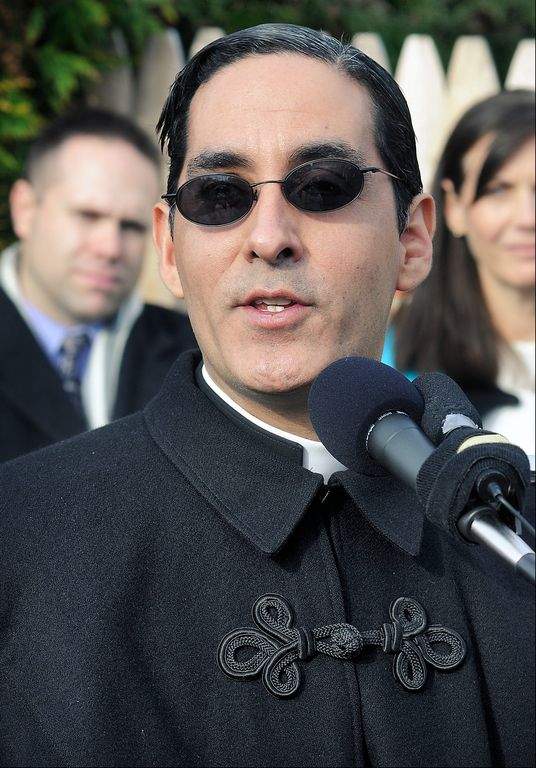 The Rev. Marcel Guarnizo had declined to comment publicly since the Feb. 25 Mass at St. John Neumann Catholic Church, where Barbara Johnson was mourning her mother. Having learned just before the Mass that Johnson, a 51-year-old D.C. artist, was a lesbian living with her partner, Guarnizo refused to let her receive Communion. The story exploded on the Internet, triggering an emotional debate among Catholics and others about the church’s views on homosexuality and the priest’s role in determining who is fit to partake of the sacrament.
The Rev. Marcel Guarnizo had declined to comment publicly since the Feb. 25 Mass at St. John Neumann Catholic Church, where Barbara Johnson was mourning her mother. Having learned just before the Mass that Johnson, a 51-year-old D.C. artist, was a lesbian living with her partner, Guarnizo refused to let her receive Communion. The story exploded on the Internet, triggering an emotional debate among Catholics and others about the church’s views on homosexuality and the priest’s role in determining who is fit to partake of the sacrament.
Guarnizo’s statement, distributed on the conservative news site CNSnews.com, contradicts the account given by Johnson and her family about how the tensions that day unfolded.
He also said his parish priest and the Archdiocese of Washington were being dishonest when they told parishioners this past weekend that Guarnizo was being removed for intimidating behavior unrelated to the Communion standoff.
Guarnizo said he was removed as a result of two conversations he had with people from whom he was trying to obtain written comment about what happened at the funeral Mass: the funeral director and a parish staff member present at the funeral.
In announcing his removal, the archdiocese said it had “received credible allegations that Father Guarnizo had engaged in intimidating behavior toward parish staff and others that is incompatible with proper priestly ministry.”
In his statement Guarnizo takes his superiors to task, saying he was essentially being removed because he denied Johnson Communion.
“And indeed contrary to the statement read on Sunday, March 11th during all Masses at St. John Neumann, both instances have everything to do with the Eucharistic incident. There is no hidden other sin or ‘intimidation’ allegations that they are working on, outside of these two meetings,” he said.
“The meetings in question, occurred in our effort to document from people at the funeral Mass in written form a few facts about the nature of the incident. We have collected more than a few testimonies and affidavits, testifying to what really took place during the funeral liturgy.
“My personal conversation with both parties in question were in my view civil, professional and in no way hostile. I respect both individuals in question and really do not know the nature of their grievance.”
Officials at DeVol Funeral Home have declined to comment, as have parishioners, who were told to refer questions to the archdiocese.
The Catholic blogosphere has been ablaze with debate about the incident, in part because of the silence of Guarnizo and the St. John Neumann community.
Previously, the only other details about the incident came from anonymous sources on conservative Catholic blogs who said Johnson had outed herself to the priest for no reason, forcing his hand.
Guarnizo said in his statement that public pressure to give Communion to the wrong people will force “the cruelest crisis of conscience that can be imposed.”
“It seems to me, the lack of clarity on this most basic issue puts at risk other priests who wish to serve the Catholic Church in Washington D.C.,” he said.
Officials of Washington Archdiocese, which includes the District and the Maryland suburbs, did not immediately respond to a request for comment. But Johnson’s brother, Larry, said the family is livid.
“I actually thought there had been some closure. He has ripped it apart and escalated it,” said Larry Johnson, a Loudoun County accountant. “It’s remarkable. I thought he was a reprehensible person, and he’s certainly confirmed it. The arrogance, the tone, the characterizations, the blatant falsehoods.”
In describing the incident, Guarnizo said Barbara Johnson and her partner came in “completely unsolicited” and identified themselves as “lovers.”
The Johnsons said the women’s relationship came up inadvertently when Guarnizo, during a discussion of pre-Mass logistics, asked who the other woman was, and the other woman replied, “I’m her partner.”
Larry Johnson’s voice shook as he described Guarnizo’s version of events.
“His premise of the whole thing is the most remarkable. . . . I witnessed the coldness of this man, the arrogance of this man,” he said.
Guarnizo’s status at the parish isn’t clear as the Northern Virginia native is attached to the diocese of Moscow. It wasn’t known whether he was still a parish resident or what his suspension means for his ministry.
He said he would defend himself.
“What happened I believe contains a warning to the church. Such circumstances can and will be repeated multiple times over if the local church does not make clear to all Catholics that openly confessing sin is something one does to a priest in the confessional, not minutes before the Mass,” he said. “I am confident that my own view, that I did the only thing a faithful Catholic priest could do in such an awkward situation, quietly, with no intention to hurt or embarrass, will be upheld.”
Complete Article HERE!

